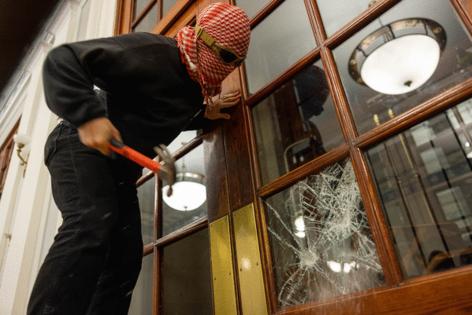Editorial: When universities award degrees in intolerance
Published in Op Eds
Decades ago, college students fought for free speech on college campuses. Today, many college students fight against the exercise of free speech on college campuses.
Worse, the ideas that inspire these students to shut down civil discourse often come from college professors. Many higher education administrators then lack the moral clarity and courage to defend the free exchange of ideas.
At many colleges, students feel unsafe expressing their personal opinions. Forest Romm and Kevin Waldman are both clinical psychology researchers. Between 2023 and 2025, they interviewed more than 1,400 undergraduate students at Northwestern University and the University of Michigan.
“More than 80 percent said they had submitted classwork that misrepresented their views in order to align with professors,” they wrote in an article last month. For example, “77% said they disagreed with the idea that gender identity should override biological sex in such domains as sports, healthcare, or public data — but would never voice that disagreement aloud.”
It’s not just students who self-censor. Last year, the Foundation for Individual Rights and Expression released the results of a survey of around 6,300 higher education faculty. It found that 28% of faculty “at least occasionally hide their political beliefs from other faculty in an attempt to keep their jobs.”
These fears are understandable. Campus speakers who don’t adhere to left-wing orthodoxy face the heckler’s veto, including threats. In 2023, Riley Gaines, who opposes biological men in women’s sports, spoke at San Francisco State University. After her speech, student protesters forced her and campus police to barricade in an office for more than three hours.
Others aren’t able to speak at all. According to a database maintained by The College Fix, colleges have canceled dozens of speeches or events since 2022.
The violence and intimidation aren’t limited to conservatives. In spring 2024, anti-Israel protests started on dozens of campuses. On some campuses, students established tent encampments and broke into buildings. Many Jewish students were attacked.
This represents institutional and societal rot. “An open society depends on liberal education, and the whole enterprise of liberal education is founded on the principle of free speech,” the ACLU wrote.
Instead, many students today learn that speech can be violent. Once you label speech as violence, it’s easy to rationalize physical violence against the speaker as self-defense. Many college administrators have accepted this premise. They warn against “microaggressions” or urge staff not to use terms such as “American” or “you guys.”
One way for colleges to guard against this is to urge professors to regularly model vigorous and civil debates and dialogues. Some make sure to do so. This is what Charlie Kirk fought for on university campuses.
But over the decades, the ranks of college professors have skewed in one direction. The result is that many colleges do more to educate students in intolerance than in disagreeing agreeably. This won’t change until the adults on campus — professors and administrators — make clear that they welcome varied opinions as fundamental to the core function of higher education and a valued doctrine in a democratic republic.
_____
©2025 Las Vegas Review-Journal. Visit reviewjournal.com.. Distributed by Tribune Content Agency, LLC.
























































Comments